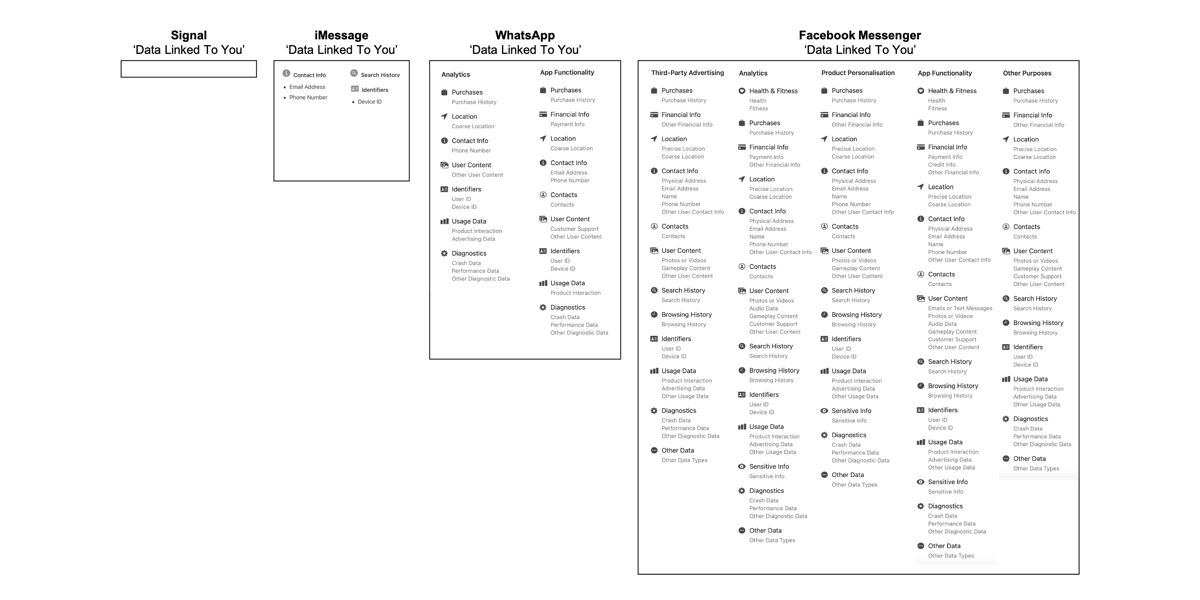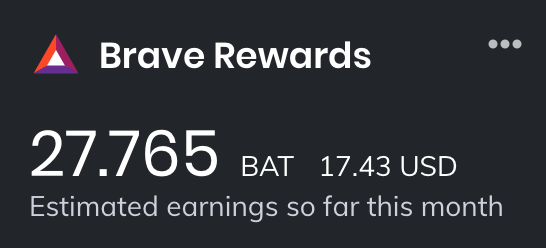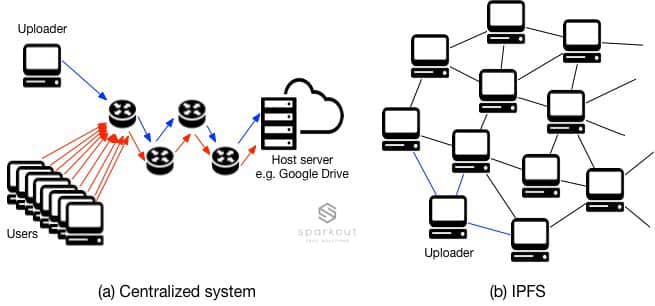Two Web3.0 companies solving the privacy crisis

Holon Global Investments
I recently made the startling discovery that in just two months, more than 50,328 trackers and ads tried to target me on the internet. They were snooping on my activity and collecting and storing my data on an industrial scale.
The idea that our mobile phones are recording every word we say was once the ramblings of conspiracy theorists and crazy libertarians. However, in today’s world, it’s happening. Our apps listen to us 24/7, our browsers track every site we look at, and our smartwatch records every time we skip the gym for Friday drinks.
In an alarming escalation of the data collection problem, Facebook's management recently announced an update of its WhatsApp messaging platform's privacy terms to bring them more in line with the data they collect from the Facebook Messenger app. This was eye-opening for the 2 billion WhatsApp users seeing how much data Facebook would soon collect on their daily lives.

Source: (VIEW LINK)
If you are worried about big tech giants knowing your exact location, seeing private messages between you and your partner, and selling this data to a marketing company, you should be.
The good news is that a new generation of Web 3.0 and privacy focused non-profit companies are emerging that are solving the internet privacy problem. We look at two new tech saviours — Brave and Signal — that are handing back control and privacy to users.
Brave and Signal could potentially disrupt the online ad revenue model globally, which will forever change how companies attract and retarget customers online. Any company with an online presence needs to watch the adoption of this new technology very closely.
Be Brave
When you use your browser today it is constantly trying to create a digital fingerprint of everything you do. It’s constantly sending sites you visit and your IP address back to their company HQ.
Meanwhile, while you’re on your favourite site, data-grabbing ads and trackers are monitoring every mouse movement and filtering you into a global engine to track you around the web.
Brave, a new privacy-focused browser, has inbuilt technology that automatically blocks trackers, popup ads and anything trying to hack your privacy. In the two months since I started using Brave, I have been blown away by how many trackers and ads have tried to target me – 50,328!

When you take all those trackers and ads out of the loading time of the browser, something amazing happens: your browsing experience is FAST. Brave touts that it can increase your browsing speed by 2x in the browser and 7x faster on mobile.
“Three times faster than Chrome. Better privacy by default than Firefox. Uses 35% less battery on mobile.”
In the future, a privacy-focused browser like Brave will build more features that move the browser into the second phase of its journey. It will move the world from the ‘attention’ economy, to the ‘intention’ economy: you will earn BAT (Basic Attention Tokens) for looking at ads you choose to view. Earning a cup of coffee for looking at ads from your favourite golfing brand sounds good to us!

Brave can also access The InterPlanetary File System (IPFS). IPFS allows documents/media assets to be stored all over the world in little pieces on multiple computers. Moving how we access files on the internet from location-addressing (centralised) to content-addressing (decentralised) has three major benefits; it speeds up the internet, makes the infrastructure more robust and protects content from censorship.

Source: (VIEW LINK)
Brendan Eich, the CEO of Brave, is a true technologist of the 21st century. He was the creator of Javascript, which underpins every web application today and he is also the former CEO of the Mozilla Foundation. The Brave browser now has 25m users and I highly recommend you try the privacy-focussed browser for a month, once you start you won’t go back.
Sending a Signal on privacy
When we communicate via message it is usually with family and friends, so it is our most sensitive and private communication. But, as you can see from the chart above, using a Web 2.0 centralised company like Facebook or Apple isn’t the best service to keep our privacy intact.
Signal, a non-profit company, is now creating the world’s best state-of-the-art, end-to-end encrypted messaging app to enhance privacy.
Signal isn’t tied to any major tech companies. They won’t be acquired by one either. They are a non-profit, supported by donations from the global community and grants from business leaders, like Jack Dorsey, who says he trusts Signal because of how it is built: “Open source, peer reviewed, and funded entirely by grants and donations. A refreshing model for how critical services should be built.”
Signal has no ads, no trackers, no affiliate marketers and records zero information on your messages and calls which makes it a clear winner in today’s world of overbearing data collection.
Giving back control
Awareness of just how invasive the platforms we live on is reaching a crescendo. Governments are trying to regulate them, and the majority of people simply want some level of our personal data to stay personal. There are next generation solutions and platforms like Brave and Signal available to do just that, put the control in the hands of the user and let us decide what data we are happy to share.
Google’s ad revenue for the fourth quarter of 2020 was $46.20 billion, a large portion of this ad revenue could be potentially disrupted by Brave and Signal. Our research teams are watching the emergence of privacy-focused technology very closely as these innovations could change how brands and customers interact forever.
Understanding Web 3.0 platforms is critical for investors to remain ahead of the curve when it comes to returns you can make in the future, follow us to learn more.

A founder of Holon Global Investments, Heath is a global equities portfolio manager applying a qualitative focus to investing in businesses to take advantage of global digital innovation.
Expertise

A founder of Holon Global Investments, Heath is a global equities portfolio manager applying a qualitative focus to investing in businesses to take advantage of global digital innovation.
